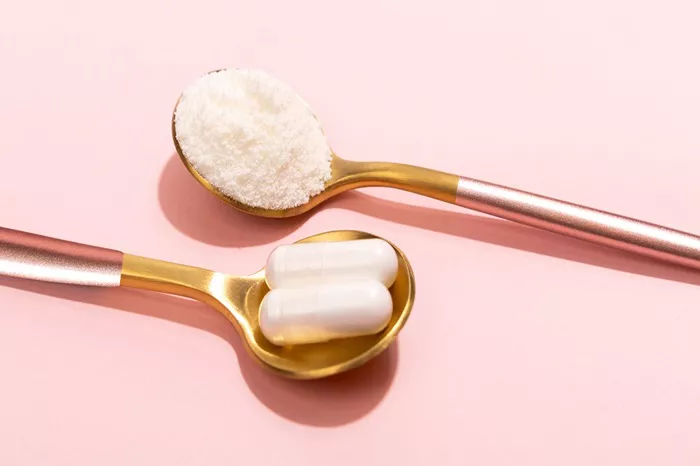Collagen is increasingly integrated into a variety of products, from skincare to morning beverages. This protein, found in skin, hair, nails, bones, and muscles, is believed to enhance skin elasticity and volume. Factors such as aging, sun exposure, and lifestyle choices—including smoking and dietary habits—can deplete collagen levels, leading to the growing popularity of collagen supplements, often derived from animals.
Despite its rise in usage, skepticism about collagen’s effectiveness persists. Laura Dowling, a pharmacist specializing in female health, references a 2019 study that provides strong evidence for the benefits of oral collagen supplements in improving skin health. Conversely, Dr. Yannis Alexandrides, an aesthetic practitioner and founder of the 111 Harley St Clinic, argues that collagen supplements lack conclusive evidence supporting their ability to enhance skin quality, calling for further research.
Personal experiences vary; for instance, some users report no noticeable changes after months of supplementation. Dowling notes that many customers seek collagen products, citing improved skin bounce and hydration.
Regarding safety, Dowling mentions that while digestive issues can occur, collagen supplements are generally well-tolerated. For those concerned about cost, incorporating collagen-rich foods such as bone broth, fish, and egg whites can be an alternative way to boost intake.
Related topic:
How Can I Rebuild Collagen in My Face?
What type of collagen is best for anti aging?
Does microdermabrasion build collagen?

